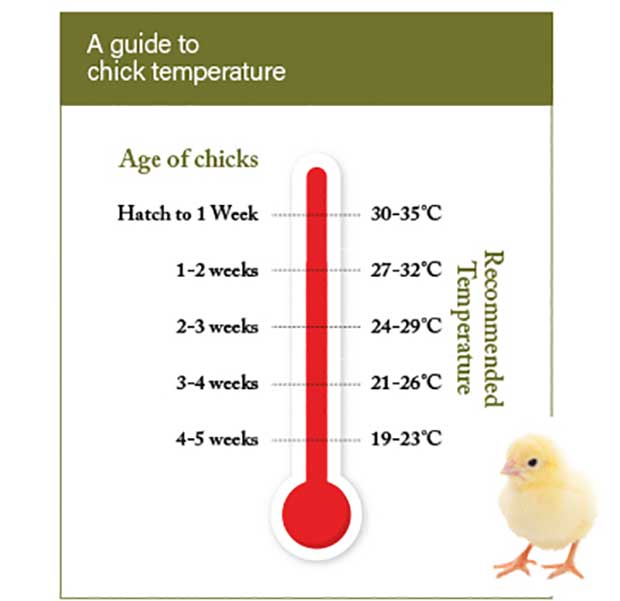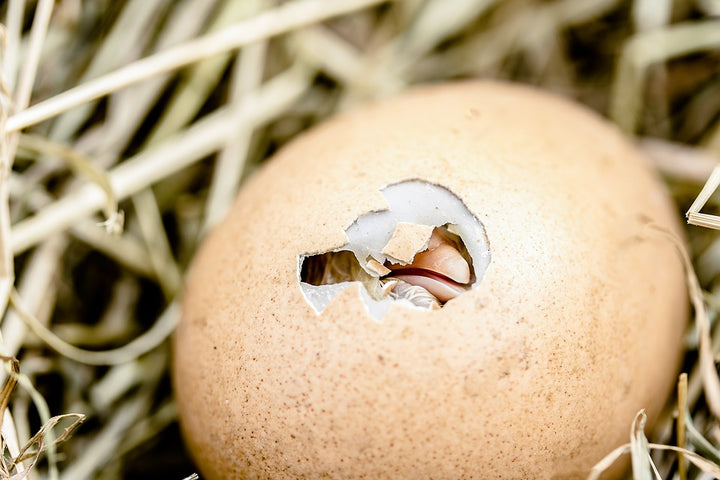Taking care of baby chicks can be overwhelming. We get it! Follow these tips to make things easier for you and your new baby chicks.
1) Provide the right temperature. Baby chicks can’t regulate their own temperature and need an external heat source to keep warm. During the first week of life, chicks prefer temperatures ranging from 95-100F. You can tell if chicks are at a comfortable temperature by where they are positioned relative to the heat source. If they are huddled around the heat source, then they are likely too cold. If they are avoiding the heat source, then they are likely too hot. Being too hot or too cold can severely stress the baby chick and can prevent them from growing into a happy and healthy chicken.

2) Set up a brooding area. A brooder is an enclosed home for baby chicks, like the chick version of a crib. Having the enclosed area allows the chicks to stay near the heat source and close to food and water. They are still getting used to their new life outside of the egg, so keeping the area small makes the transition easier for them. A brooder box doesn’t have to be fancy—it can be anything from a cardboard box to a dog pen to a laundry basket.

3) Teach chicks how to drink and eat. Baby chicks are quick learners but sometimes need some guidance. Showing a couple of your baby chicks where to find feed and water encourages them to eat and drink. If a chick doesn’t figure this out within the first three days of life, they are at risk of dying. Dip their beak into water to show them where the water is and how to drink. Spread some feed out on a plate to make it easy for chicks to peck at food, which encourages them to eat food from their feeder.

4) Brood them in a clean and bright environment. Baby chicks are still growing and developing, and keeping them in clean environment is essential. Bright lights help chicks find the feed and water you provide them. It also allows them to be more active and feel safe within their new environment.

5) Provide them with supplements like probiotics. In nature, mother birds provide their babies a source of good bacteria through something called the cecal dropping. This process provides beneficial bacteria to help develop the digestive system. Because young chicks don’t often have access to their mother's cecal droppings, it is important to provide them good bacteria through a supplemental probiotic.
If you're adding chicks to your flock. we recommend Arrive probiotic supplements. Click here to buy.

